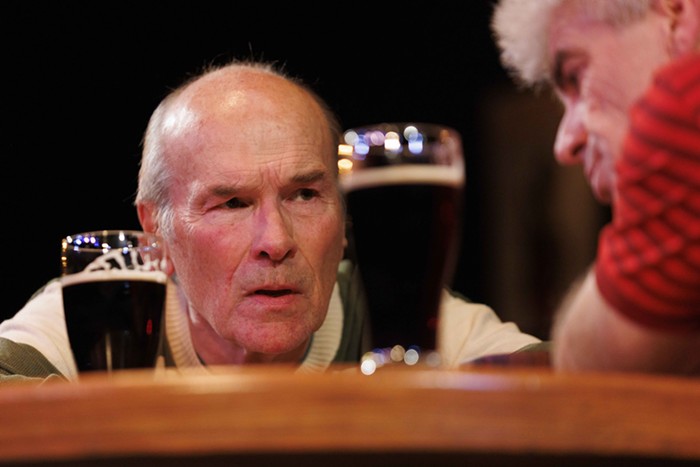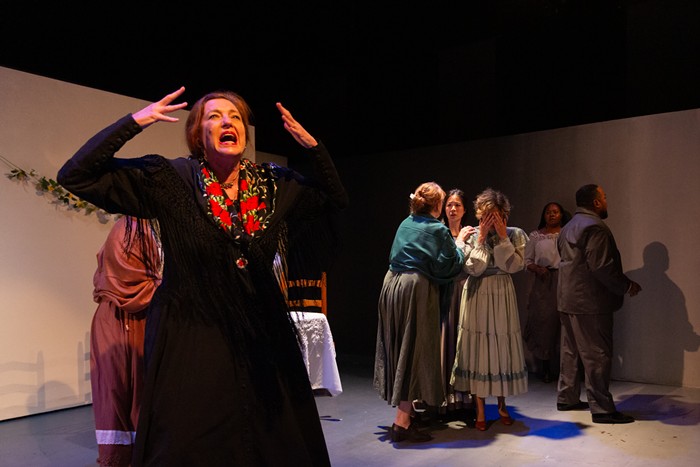CONDUIT'S SECOND ANNUAL Dance+ series is a curated performance series featuring artists from the West Coast and Texas. It's a two-weekend show with different programs each weekend, and last weekend's first round of shows—a diverse mix of dance, heavy on duets between women—was a mixed bag.
Standouts included Subashini Ganesan and Michelle Fujii's Omoide Ananda II, a beautiful merging of two distinct traditions: Japanese drumming (by Fujii of Portland Taiko) and south Indian classical dance (by Ganesan of Natya Leela Academy). The two perform solo, rhythmically cued by one another, and in unison. Ganesan is lyrical and coy, Fujii overtly confident and joyous.
More colloquial movements came in the form of Jessica Hightower's piece, Problem of Bias, which at times felt like a penny arcade, the dancers moving like marionettes. In a more absurd vein was the confused Cacophony for 8 Players, directed by Torben Ulrich, which I think is a performance that's simply better if you're involved with it—it's the kind of thing you see in art school, performed in a warehouse to a crowd of (patient) art school friends. Musical accompaniment included atonal trumpet, bass, and even a recorder, topped off with incoherent costuming (one dancer wears a strappy backless top that looks like the top of a prom dress).
Contrasting with the absurd was the elegant film Clipped Wing, which features two pairs of lovers (including Franco Nieto and Lindsey Matheis of the Northwest Dance Project), one in a wooded area and one inside a modernist home. They chase each other and run from one another—the movement is jumbled, but fluid—the couples' bodies twisting and wrapping around one another in ambivalence. There's a sense of seeking in the video, which the work feels to be doing as well.
The series wraps up this weekend with larger groups, the highlight being Ate9 Dance Company's Two Years After, led by choreographer Danielle Agami. Of the performances in last year's Dance+, bobbevy and Kaj-anne Pepper (of the DECEPTiCONS) have been chosen for this year's TBA Festival. Dance+ has received local support—including a project grant from the Regional Arts and Culture Council—as well as national recognition in the form of a SEED grant from the Robert Rauschenberg Foundation, which seems to confirm a dominant feeling about the series: that it is a breeding ground, a laboratory for ideas. At that, it certainly succeeds.



















